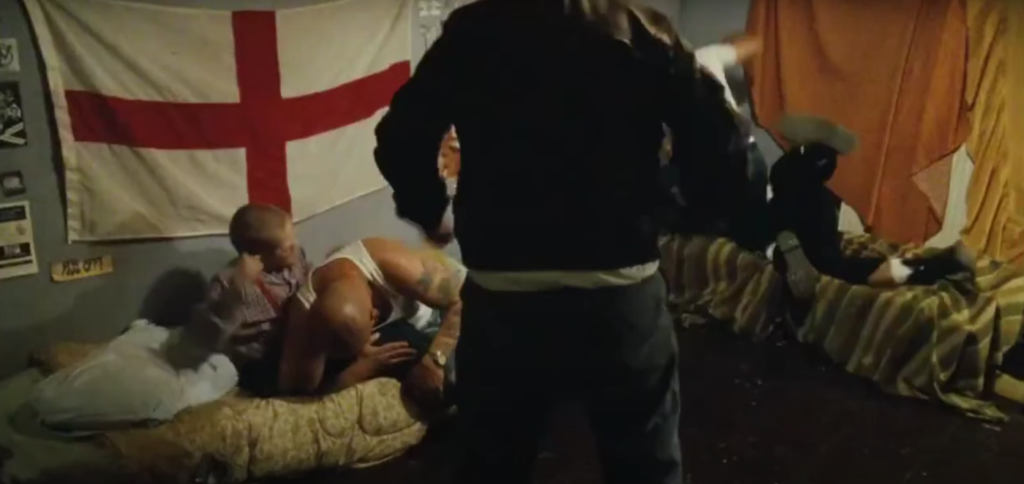Mise-en-scene: At 03:53, we’re shown Shaun in his bed, within the frame there is an alarm clock, paint which had flaked off of the walls, and most importantly, a framed picture of his dad who served in the army. This is significant throughout the rest of the film as Shaun’s actions are being motivated by his fathers death in the war, wanting to make his death worth something (something, meaning the country and its pride, which Combo and his gang feel strongly about).

Editing: At 25:01, after Shaun gets his skinhead makeover, finally being a part of Woody’s gang, we are shown slow motion shots of the male members of the gang as well as the female members, their shots dissolving together to showcase the parallels. This highlights the sense of unity within the group, regardless of gender.

Cinematography: At 43:38, Combo’s true intentions come into the light – highlighted by the low angle he’s shot at, suggesting power and intimidation – as he gives Woody’s gang a speech about England’s loss of pride (nationalism), and how he wants to change that and make England great again, imposing white supremacist propaganda. This eventually peer pressures a couple of members to join him, specifically Shaun, and this is only the surface of Combo’s power-hungry personality.

Sound: All throughout the film we’re given a range of popular music from that time period, mostly during the first half because Shaun’s social circle spirals as he is exposed to negative influences. An example of this would be when Soft Cell’s ‘Tainted Love’ cover is heard briefly in the first half, a popular song in the 80s, and then shifting to an atmospheric/melancholic score, composed by Ludovico Einaudi. This encapsulates Shaun’s situation, going from dull and mediocre to distressing and traumatic.
